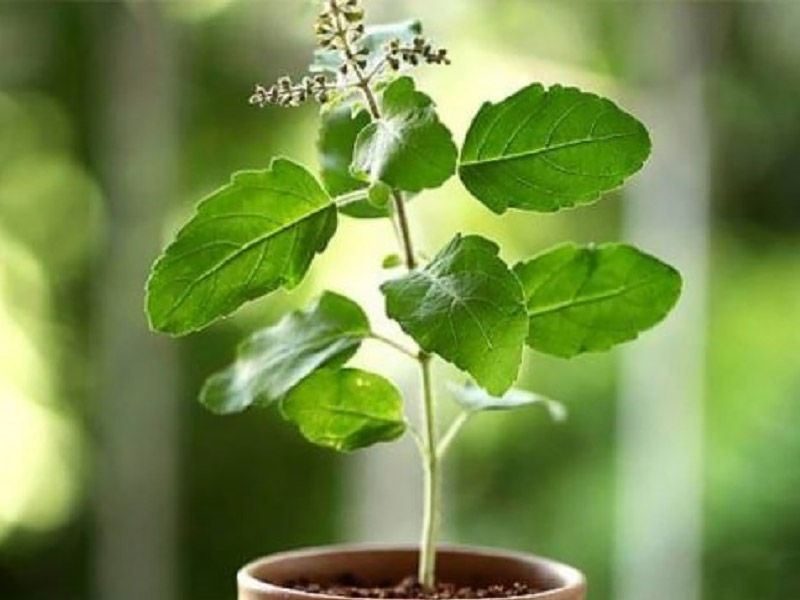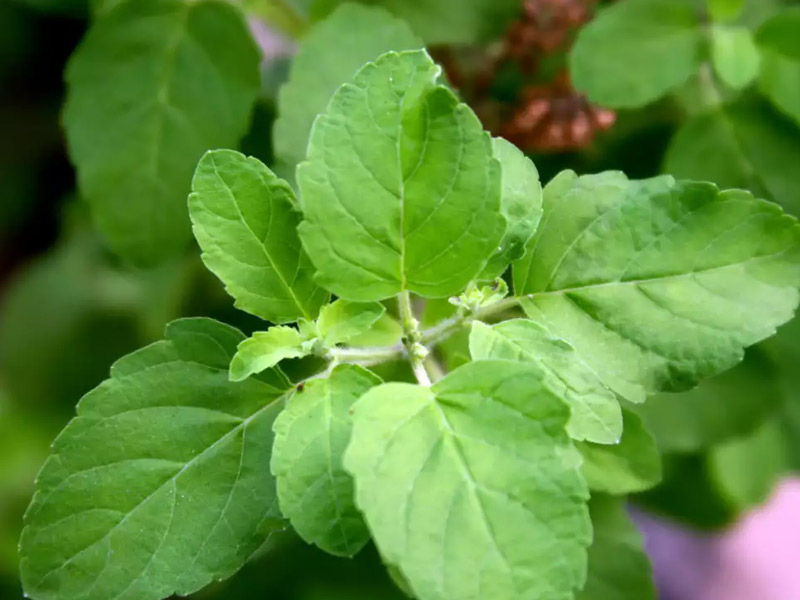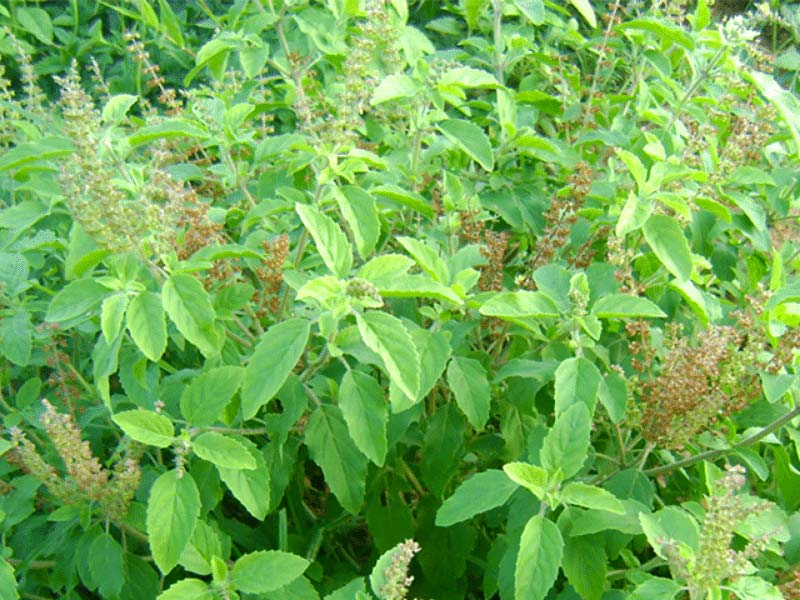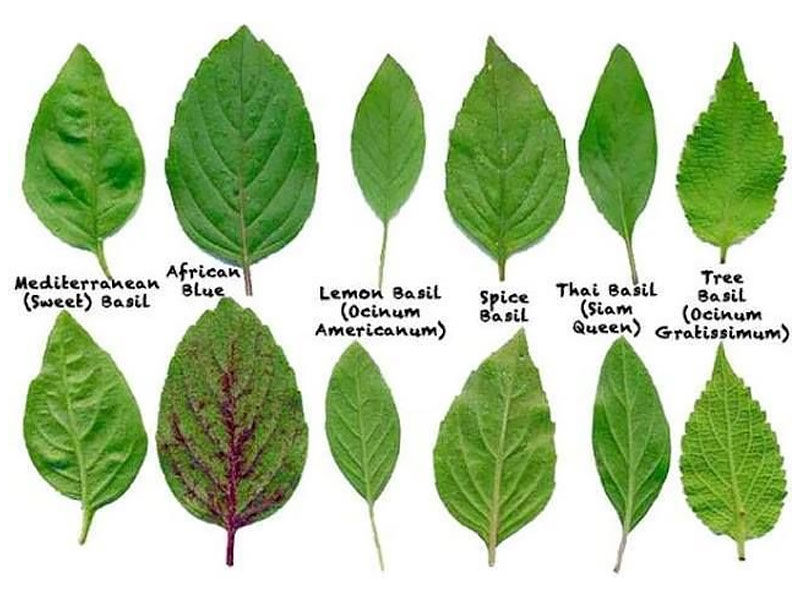Tulsi is a treasured plant in India and is a staple in many households. Many of us are already aware that it is highly valued for its medical capabilities. Tulsi’s aromatic oval-shaped leaves, scientifically known as Ocimum Sanctum, are plants utilized in alternative medicine such as Ayurveda for their great therapeutic powers.
We live in numerous health concerns and rising cases of health problems such as diabetes, obesity, cancer, etc. At the same time, we are fortunate to have a wonderful plant gifted to us by nature that has incredible healing capabilities. In this post, we will discuss some of the benefits of tulsi leaves that you can use to live a better life.
Holy basil/Tusil is considered a tonic for the body, mind, and spirit from the leaves to the seed. Different sections of the plant are suggested for treating various conditions:
- Bronchitis can be treated with fresh flowers.
- Malaria can be treated using leaves and seeds, together with black pepper.
- For diarrhea, nausea, and vomiting, use the entire plant.
- Eczema can be treated with a tablet and an ointment.
- For stomach ulcers and eye disorders, use an alcohol extract.
- For bug bites, apply an essential oil prepared from the leaves.

1. Improves Immunity
Tulsi contains a high concentration of antioxidants and micronutrients, which aid in treating common disorders such as the common cold, flu, fever, asthma, etc. Consuming tulsi leaves or drinking tulsi-infused water can help relieve the symptoms of a sore throat and a cold. Furthermore, tulsi inhibits the growth of some cancer-causing cells and HIV cells, hence preventing life-threatening infections.
2. Fever (antipyretic) and pain (analgesic) reduction:
Tulsi possesses antibacterial and anti-viral qualities that aid in the battle against illnesses, hence lowering fever. Fresh Tulsi juice combined with mixed black pepper powder can be used to treat periodic fevers. Tulsi leaves cooked in 1⁄2 a liter of water with crushed cardamom (elaichi) and sugar and milk also decrease body temperature. Eugenol, a terpene found in Tulsi with pain-relieving properties, relieves physical ailments.
3. Infections are cured.
Tulsi has been used for millennia to treat wounds and infections due to the plant’s antiviral, antifungal, antibacterial, and antifungal qualities. It also possesses anti-inflammatory qualities that aid in the reduction of inflammation and the rapid healing of wounds.
4. Blood Purification
The sacred herb is also said to cleanse the blood, which results in healthy skin. Furthermore, tulsi advantages herbal tea can boost one’s overall health by emptying toxins and cleansing the digestive system.

5. Reduces Blood Pressure
Because consuming tulsi leaves a person by lowering high blood pressure and cholesterol levels, hypertension patients can reap major health benefits of tulsi. Holy basil is a helpful therapy for migraines, anxiety, sadness, sleeplessness, and symptoms of high blood pressure.
6. Anti-cancer properties:
Tulsi’s phytochemicals have strong antioxidant properties. As a result, they help prevent skin, liver, oral, and lung cancers.
Also Read, Benefits of Including Millets In Your Diet
7. Beneficial to Heart Health:
Tulsi has a significant impact on the treatment and prevention of cardiovascular illnesses due to its decreased blood cholesterol content, suppression of ischemia and stroke, reduction of hypertension, and increased antioxidant qualities. Learn more about heart-healthy tips.
8. Tulsi is Helpful for Kidney Stones and Gouty Arthritis:
Tulsi is an astringent and purifies the body. It reduces uric acid levels in the body, which is the primary cause of kidney stones. Lower uric acid levels are also beneficial to Gout patients.
9. Skin and hair benefits of tulsi:
Tulsi aids/helps in the removal of pimples, dark spots, and acne from the skin. It is full of antioxidants and nutrients, which help to prevent fine lines and wrinkles. Tulsi also strengthens and enhances our hair roots, which aids and helps to prevent hair loss. Tulsi’s antifungal qualities help to keep fungus and dandruff at bay.

10. Indications for Use in Gastrointestinal Disorders:
Tulsi leaves might aid with indigestion and appetite loss. They are also used to alleviate gas and to bloat.
11. Bites from insects and blood purification:
In addition to repelling insects, Tulsi leaf extracts can be applied to bug bites and stings to relieve discomfort. They also significantly minimize edema and resulting discomfort. Furthermore, consuming Tulsi daily aids in blood purification.
12. Dental and Oral Health:
Tulsi is frequently utilized in herbal toothpaste due to its wonderful teeth and gum strengthening effects. Furthermore, it can treat mouth ulcers and so provide total dental health care.
13. Eczema Treatment:
Tulsi is also available on the market in pill form and as topical ointments. These can be used to treat skin disorders such as eczema. They also offer long-term relief from itchiness and discomfort.
14. Stress and Fatigue are reduced:
Tulsi has also been found in studies to provide a variety of physical and mental health advantages. Consuming a tulsi drink, for example, after a long day at work, can be revitalizing and assist in easing tension and exhaustion. Similarly, a tulsi drink during extended hours of study can assist pupils in improving their focus.
Tulsi Consumption:
- You can consume Tulsi directly raw, plucked fresh from the plant in the morning, added to tea, or made into kadhai when you feel low.
- Tulsi tea: Heat 1 cup of water and drop it over 1 tsp of fresh tulsi leaves, 1/2 tsp of dried tulsi leaves, or 1/3 tsp of tulsi powder to prepare tulsi tea. Allow the water in a pot or cup to soak for 15-20 minutes. After that, sieve the leaves, add honey if preferred, and serve.
- Tulsi powders and tablets are also available to buy on the market.

Major Side Effects of Tulsi You Should Be Aware Of:
- Tulsi has the potential to impair the reproductive ability of women who are attempting to conceive.
- Some people experience nausea or diarrhea when they start initial consumption of tulsi tea to their diet, so start with tiny amounts and gradually increase your consumption.
- Tulsi has the potential to lower blood sugar levels and should be used with caution in those who have diabetes and are taking blood sugar-lowering medication.

























